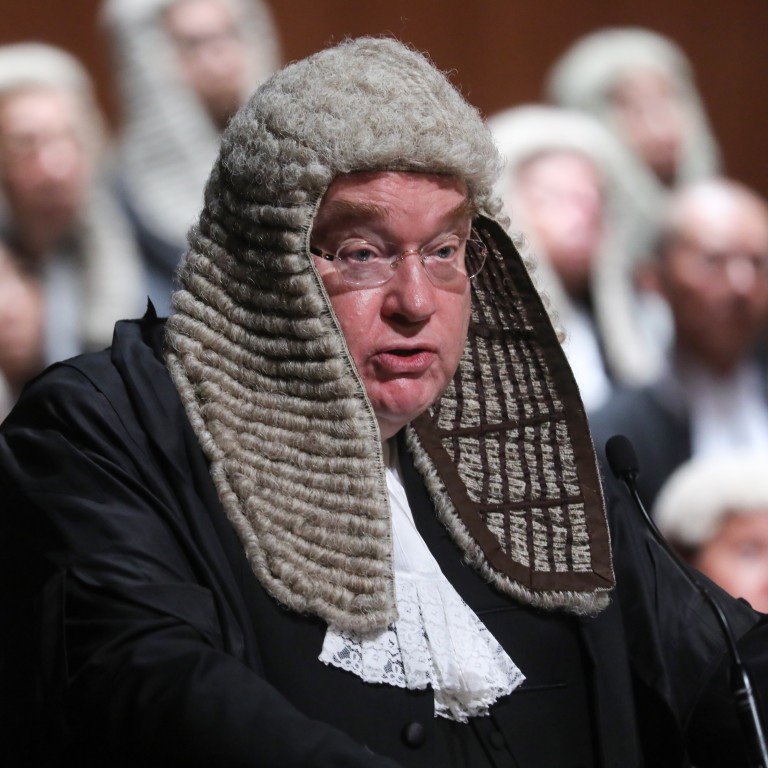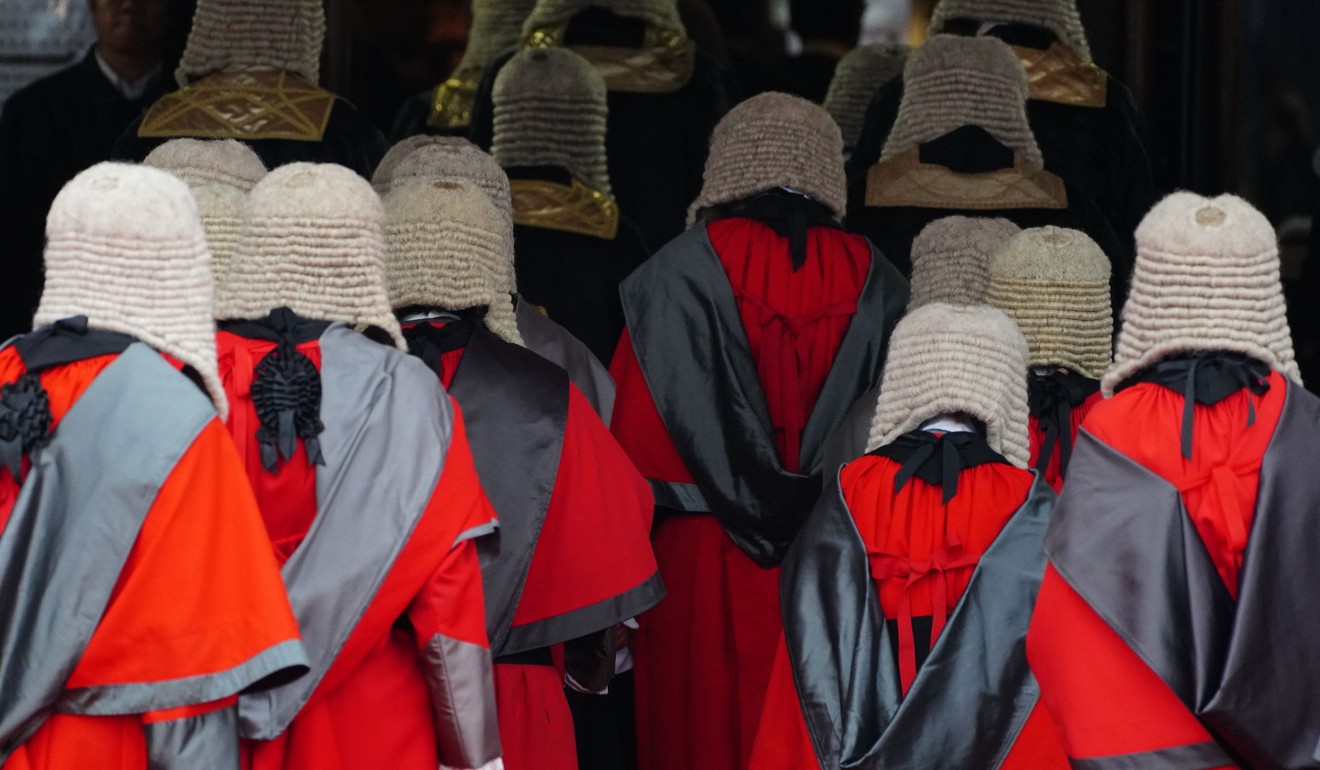
Take ‘public interest’ into account on whether to bring cases to court, instead of just sufficient evidence, head of Hong Kong Bar Association says in speech
- Philip Dykes, chairman of one of the city’s top legal bodies, makes remark at opening of legal year in City Hall, and refers to ongoing protest movement
- But he stresses he is not trying to influence decisions of the justice secretary
The head of one of Hong Kong’s top legal bodies has called for “public interest” to be taken into account when prosecutors decide whether to bring a case to court, instead of doing so based just on sufficient evidence to secure a conviction.
Philip Dykes SC, chairman of the Hong Kong Bar Association, said it would be an “incorrect understanding” of the rule of law otherwise.
He was speaking at the opening of the legal year in City Hall in Central on Monday, and referred to the anti-government protests now into their eighth month. So far police have arrested about 7,000 people. Among protesters’ demands are amnesty for those detained.
Top legal bodies outraged by High Court vandalism targeting judge
Dykes did not touch on this in his speech, but stressed he was not trying to influence any decision made by the justice secretary which, under the Basic Law – the city’s mini-constitution – should be “free from any interference”.

“However, the Prosecution Code published by the Department of Justice reminds us that a decision to prosecute is not made just because police have enough evidence to go to court and secure a conviction,” Dykes added.
The Prosecution Code published by the Department of Justice reminds us that a decision to prosecute is not made just because police have enough evidence
“Public interest plays a part in the decision-making process too, so that individuals or some classes of cases will not end up in court, even though there is a strong case against them.”
He said he appreciated that the idea would “appear odd and at variance with the rule of law which some think calls for a prosecution whenever the law appears to have been breached”, but added: “That is an incorrect understanding.”
“The prosecutor’s looking beyond the four corners of a charge sheet to other matters, both personal to the person charged ... is a part of the rule of law,” Dykes said, citing a 2006 ruling by the Court of Appeal that described the ability to look at the overall merits of a case.
Criminal lawyer opens up on resignation over Hong Kong protest violence
Although Dykes said violence and people attacking and injuring others “cannot come within the exercise of the right of peaceful protest”, he noted that the thousands of people arrested came from all walks of life.
“There will be a reckoning later this year for some,” he added.
“Some of these people now face serious charges which carry substantial terms of imprisonment. Many though have been charged with lesser public order offences, not involving violence or extreme vandalism.
“They are all of them, in the main, of good character. They are representative of a large section of Hong Kong society.”
In his address, Dykes also urged fellow barristers to be prepared to help out in court when cases went to prosecution. “That may mean reminding some members who have not practised criminal law in a long time that they should brush up their skills and be prepared to help out in court so that fair trial rights, which apply to both the prosecution and defence, may not be jeopardised.”
He also assured that barristers would not let “personal prejudices get in the way of providing representation to persons seeking to use their services”.
“Barristers will continue to defend unpopular clients and causes not because they necessarily want to, but because it is their professional duty to do so.”
The integrity of Hong Kong’s courts is under threat and must be protected
Meanwhile, Melissa Pang, president of the Law Society of Hong Kong, stressed the importance of obedience of the law and mutual respect for each other’s rights.
“With utmost respect, civil disobedience is no licence to commit arson, damage citizens’ properties and injure persons,” Pang said.
“Lest it be forgotten that obedience of the law, safeguard of the law are not only our duties, but our core values, unless we want to resort to some medieval methods of dispute resolution, for example, trial by combat.
“Every wilful disobedience of the law is an erosion on our rule of law. I do not subscribe to the view that the rule of law will not be affected if those who commit arson and injuries to persons are willing and would eventually pay the price by going to prison,” Pang said.
“We must be guarded against the ironical trap of infringing others’ freedoms in the pursuit of our own,” she said.
In her speech, Pang also stressed that “unfair and unfounded attacks [against judges] purely according to outcomes and political views cannot be tolerated”. “This is the time to tell the public that politically our judiciary is colour-blind,” she said, referring to the so-called yellow and blue camps, or pro-democracy and pro-establishment sides respectively amid the protest movement.

